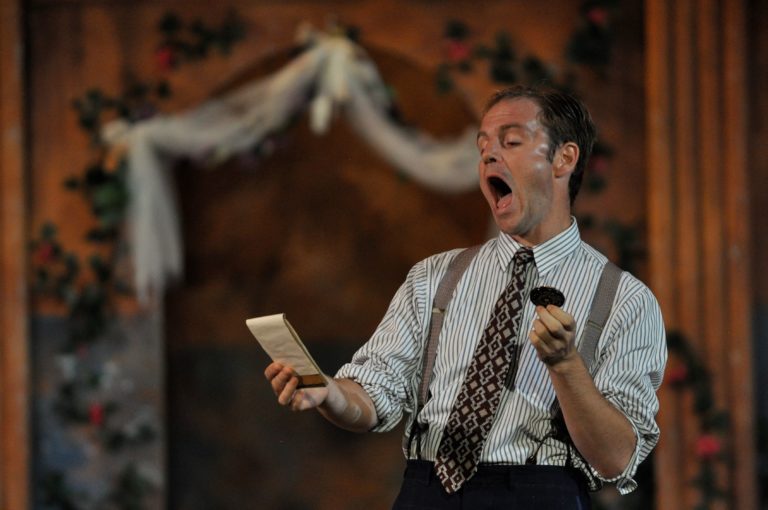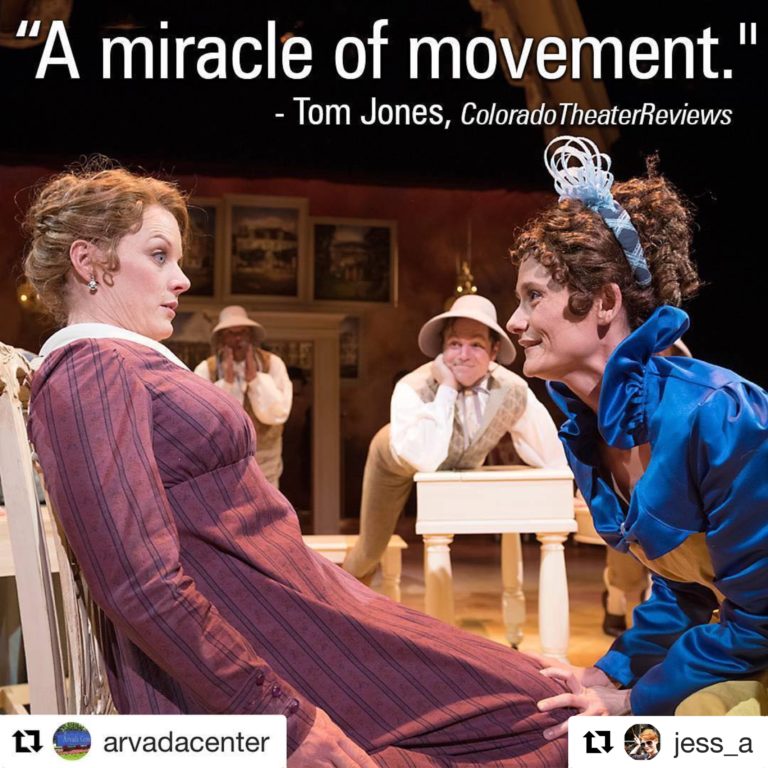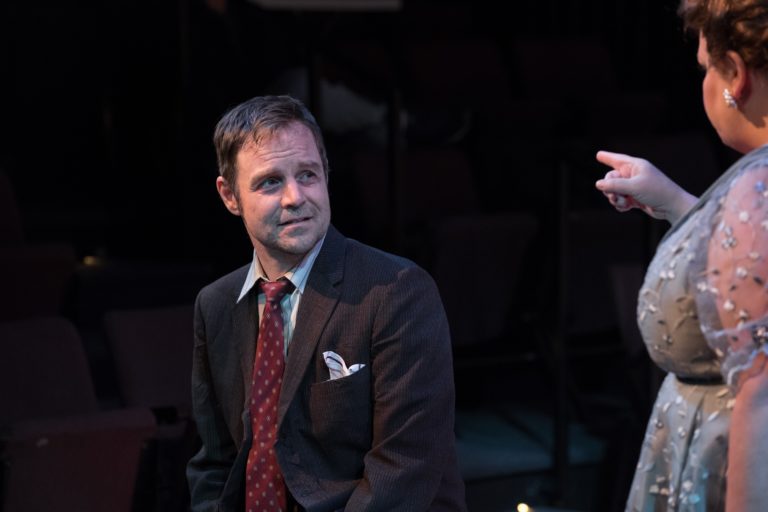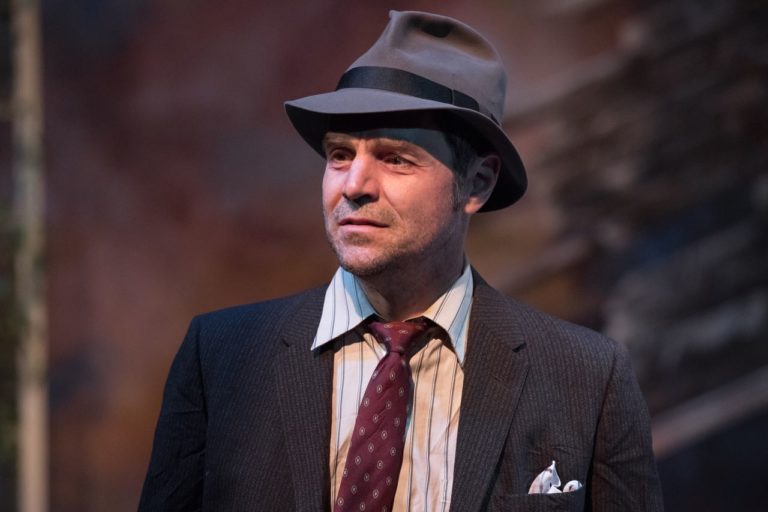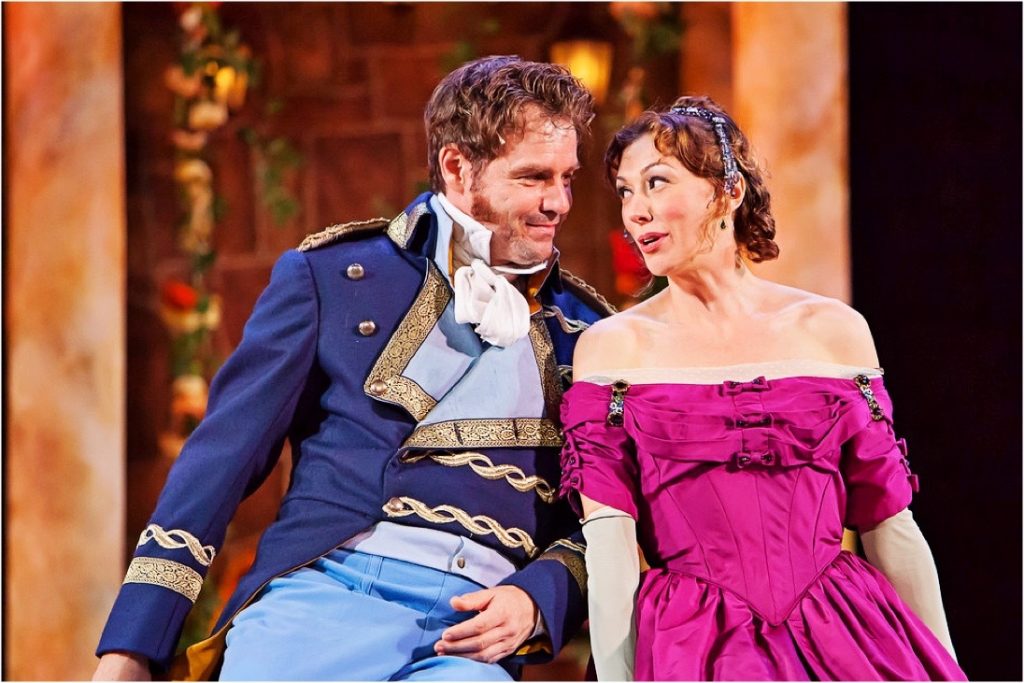
Colorado Shakespeare Festival’s ‘Much Ado About Nothing’ review
Saturday’s opening performance of “Much Ado About Nothing” turned out to be one of those magical nights outdoors at the Mary Rippon Theatre.
A threatening storm had proved impotent and passed, leaving short-sleeve temperatures. Boulder’s lovely summer evening light leaked into the theater space. Then the cast at the Colorado Shakespeare Festival took the stage and turned in a spirited, enchanting performance.
Playful, smart, romantic and genuinely funny, this “Much Ado” is something to love.
Themes of honor and tradition — and the tweaking at those norms — run through the play, and director Lynne Collins’ decision to transport “Much Ado’s” setting to a patriarchal 1930s Barcelona, Spain, is inspired.
The action takes place on scenic designer Andrea Bechert’s lovely set — a Spanish courtyard, bathed in blue and rustic tones from Victor En Yu Tan’s light design. Kevin Dunayer’s sound design — flamenco guitars that underscore several moments and sweep the actors on and off stage with flourishes — is a perfect accent.
But visual delights and setting aside, it’s the performances that turn the evening into something special.
“Much Ado’s” sharp symmetry is on full display in the CSF show; the quick-witted quarrelers Beatrice (Karen Slack) and Benedick (Geoffrey Kent); the virtuous and valorous Hero (Caitlin Wise) and Claudio (Ben Bonenfant); the good and bad brothers Don Pedro (Steven Patterson) and Don John (Michael Kane); Leonato’s (Sam Gregory) code of honor and Dogberry’s (Chip Persons) comic mirroring of it.
Kent and Slack take that mirroring literally in one pleasing scene when, without words, they accidentally mimic each other and, doing so, speak volumes.
The duo, perfectly cast, makes a splendid pairing. Slack’s Beatrice is smart, delightfully feisty and surprisingly vulnerable.
Truth be told, though, this is Kent’s show. He’s dashing, but approachably so, sturdy and worldly, yet boyish. Mostly, it’s Kent’s ability to reveal Benedick’s need for Beatrice that turns this from an evening of fun wordplay into a real romantic comedy.
Though he would have Beatrice think her arrows glance off a thick skin, Kent allows us to see them hit their mark. The more they strike, the more bewildered and bewitched Kent’s Benedick becomes, and the more we want to see these two lay down their arms and wrap each other up in a sweet, sloppy embrace.
Persons, as the copper Dogberry, tries to unbury his character’s humorous malapropisms, but many are lost on the audience. Nevertheless, Persons charms by draining Dogberry of wit and filling him with earnestness.
Denver Center Theatre regular Gregory looks and sounds right at home in his Mary Rippon debut. His Leonato is stern, yet softhearted. Bonenfant makes Claudio’s remorse believable, so crucial to the play’s ending.
It’s a subtly conflicted, nearly melancholy ending, at that. As Leonato urges the nuptial ceremony, Benedick waves it off. Serious matters are coming, including the responsibilities of marriage, and Benedick prefers to take in the moment — his last as a single lad — with music and dance.
As it has for five decades and counting, the Mary Rippon provides a beautiful setting for that moment.

